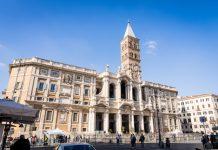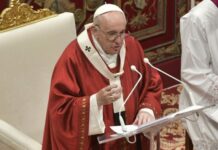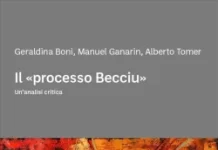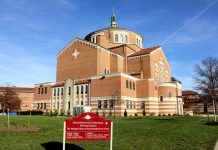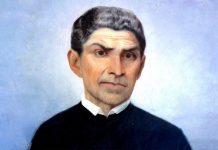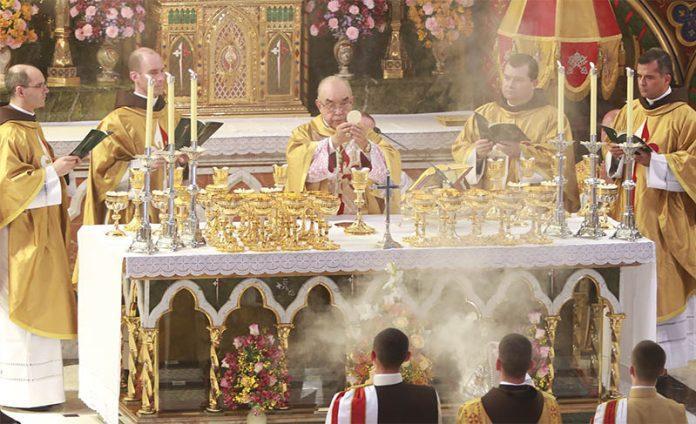
Why is the priesthood of Jesus Christ associated with that of Melchizedek? And why is the oblation of the latter compared to the Eucharistic sacrifice?
Newsdesk (05/08/2023 11:52, Gaudium Press) We read in the Roman Martyrology of August 26th: “Saint Melchizedek, king of Salem and priest of the Most High God, who greeted and blessed Abraham when he returned victorious, offering to the Lord a holy sacrifice, an immaculate host. As a pre-figure of Christ, he was identified as the king of peace and justice and an eternal priest without genealogy”.
He is one of the most mysterious characters in the Bible, and his sacrifice is a pre-figure of the Eucharist in the Old Testament. To put it in context, let’s look at the passage in Genesis where it is quoted:
“After his return from the defeat of Chedorlaomer and the kings who were with him, the king of Sodom went out to meet him at the Valley of Shaveh (that is, the King’s Valley). And King Melchizedek of Salem brought out bread and wine; he was priest of God Most High. He blessed him and said, “Blessed be Abram by God Most High, maker of heaven and earth; and blessed be God Most High, who has delivered your enemies into your hand!” And Abram gave him one-tenth of everything” (Gn 14:17-20).
It happened that five kings from the lands of Canaan sacked the cities of Sodom and Gomorrah, taking Abraham’s nephew, Lot, prisoner. A fugitive brought word that suddenly transformed the patriarch into a man of war who defeated this coalition of kings, seized their spoils and rescued his kinsman. In parenthesis, this is a little considered aspect of our father in the faith that complements his profile admirably: Abraham was a fighter!
Among those who come out to congratulate the victor is Melchizedek, who blesses him and offers him bread and wine. After this episode, our personage disappears from the pages of the Holy Book, only to appear again, after a reference to Psalm 109, in St. Paul’s Letter to the Hebrews.
In fact, Christian exegesis concerning Melchizedek begins with this Letter. It is an explanation of several verses – we quote only a few below – of particular interest. No one interprets it better than the Apostle who unravels the mysterious halo that surrounds this figure.
“This ‘King Melchizedek of Salem, priest of the Most High God, met Abraham as he was returning from defeating the kings and blessed him’; and to him Abraham apportioned ‘one-tenth of everything.’ His name, in the first place, means ‘king of righteousness’; next he is also king of Salem, that is, ‘king of peace.’ Without father, without mother, without genealogy, having neither beginning of days nor end of life, but resembling the Son of God, he remains a priest forever.
“See how great he is! Even Abraham the patriarch gave him a tenth of the spoils. And those descendants of Levi who receive the priestly office have a commandment in the law to collect tithes from the people, that is, from their kindred, though these also are descended from Abraham. But this man, who does not belong to their ancestry, collected tithes from Abraham and blessed him who had received the promises. It is beyond dispute that the inferior is blessed by the superior …
“Now if perfection had been attainable through the levitical priesthood—for the people received the law under this priesthood—what further need would there have been to speak of another priest arising according to the order of Melchizedek, rather than one according to the order of Aaron? For when there is a change in the priesthood, there is necessarily a change in the law as well. Now the one of whom these things are spoken belonged to another tribe, from which no one has ever served at the altar.
“For it is evident that our Lord was descended from Judah, and in connection with that tribe Moses said nothing about priests. It is even more obvious when another priest arises, resembling Melchizedek, one who has become a priest, not through a legal requirement concerning physical descent, but through the power of an indestructible life. For it is attested of him, ‘You are a priest forever, according to the order of Melchizedek.'” (Hb 7,1-17)
The Hebrews of St. Paul’s time had all the historical-religious foundations to understand his teachings. He explains to them the supremacy of Christ’s priesthood over that of Aaron, given the sacrificial value of His humiliation and redemptive death. But why would Christ’s priesthood be “after the order of Melchizedek”? Not precisely because of the offering of bread and wine, but because of the eternity of Jesus’ priesthood, of which Melchizedek was a pre-figure, because he had no genealogy. Another thing to be pointed out, and which is surprising, is that Abraham, with all the prominence he has in the Judeo-Christian worldview, places himself in a role inferior to that of Melchizedek, giving him the tithe and receiving the blessing from him.
Melchizedek’s offering was unbloody, which brings it closer as a pre-figure to the celebration of the Mass. Yes, because this ritual offering of bread and wine says more than the other figures of the Eucharist, such as the paschal lamb, the unleavened bread, the blood on the doors of the Israelites or the manna in the desert.
The Fathers of the Church have written extensively about Melchizedek in the light of the Pauline teachings. The Church pays him great homage by quoting him in Canon No. 1 of the Mass: “Receive, O Father, this offering […] the Sacrifice offered to you by your High Priest Melchizedek, holy Sacrifice, immaculate Host”.
The greatness of the king of Salem that St. Paul praises in his epistle is like a grain of sand before the immensity of the royalty of Christ, the true, eternal and only priest of the New Covenant, who wished to associate the ordained ministers of the Church with His priesthood, so that they might commemorate and renew His redemptive sacrifice, transubstantiating the fruits of the wheat and the vine into the Body and Blood of the Lord.
May St. Melchizedek intercede with the Eucharistic Heart of Jesus for all priests, that they may be priests according to the Sacred Heart, and who govern, teach and sanctify with fruitfulness the faithful entrusted to them.
Fr. Rafael Ibarguren, EP
(Originally published in www.opera-eucharistica.org)
Compiled by Roberta MacEwan




